Key Takeaways:
- More than half of people believe their tap water is unsafe, and studies show their concerns are valid.
- Tap water can contain arsenic, chlorine, fluoride, heavy metals, herbicides, pesticides, nitrates, phosphates, radon, and bacteria.
- To keep yourself safe from the potential side effects of drinking tap water, test your water, avoid plastic water bottles, and invest in a Tyent ionizer which can remove more than 200 contaminants.
What’s in your tap water? According to a nine-month investigation by The Guardian and Consumer Reports, your tap water could contain toxic chemicals, as the report found a whopping 118 of 120 samples had PFAS (also known as “forever chemicals”), arsenic, or lead. No wonder more than half of people think tap water is unsafe. But just what are the potential side effects of drinking tap water containing these chemicals and toxins?
In this article, we’ll explore the potentially dangerous effects of tap water and, hopefully, put your mind at ease by sharing a safer way to get your daily H2O.
Reasons Tap Water Causes Side Effects
Tap water can contain a number of potentially unsafe chemicals. Let’s talk about the side effects and negative health outcomes that can come from drinking contaminated tap water.
Arsenic
Arsenic is a natural metalloid chemical usually present in groundwater. It poses health problems when consumed in dangerous amounts.
This chemical can enter residential tap water through agricultural runoff, industrial pollution, or contamination of private wells.
Arsenic poisoning may lead to the following health issues:
- partial paralysis
- numbness in hands and feet
- vomiting, nausea, stomach pain, and diarrhea
- discoloration of the skin
- blindness
Arsenic Poisoning Definition: Also known as arsenicosis, arsenic poisoning can occur when an individual consumes a dangerous level of arsenic from drinking groundwater or tap water, resulting in nausea, vomiting, diarrhea, and skin changes like darkening or lesions.
Chlorine
This is also another naturally-occurring chemical element that does not only kill bacteria and germs but also causes damage to the human body when taken in dangerous amounts orally and through inhalation.
When chlorine enters the body, it reacts with water and produces corrosive acids. People exposed to excessive chlorine may experience the following health issues:
- chronic cough
- breathing difficulty
- chronic sore throat
- chest tightness
- airway irritation
Fluoride
Fluoride is a mineral found in teeth, bones, air, rocks, plants, soil, and water.
Although naturally occurring in the human body, excess amounts of fluoride from tap water pose some health issues, such as fluorosis and severe skeletal problems.
Fluorosis Definition: A mild discoloration of the teeth due to excessive amounts of fluoride.
Heavy Metals
Heavy metals are known for their potential toxicity, especially in environmental contexts. Mercury, lead, copper, chromium, cadmium, and aluminum are all heavy metals that can pollute tap water.
If taken excessively for a long time, these heavy metals often found in tap water can harm your health. Aluminum, for example, can increase risks of the following health conditions:
- brain deformities
- Parkinson’s disease
- dementia
- Alzheimer’s disease
Lead can damage the kidneys and increase the risk of high blood pressure.
Herbicides and Pesticides
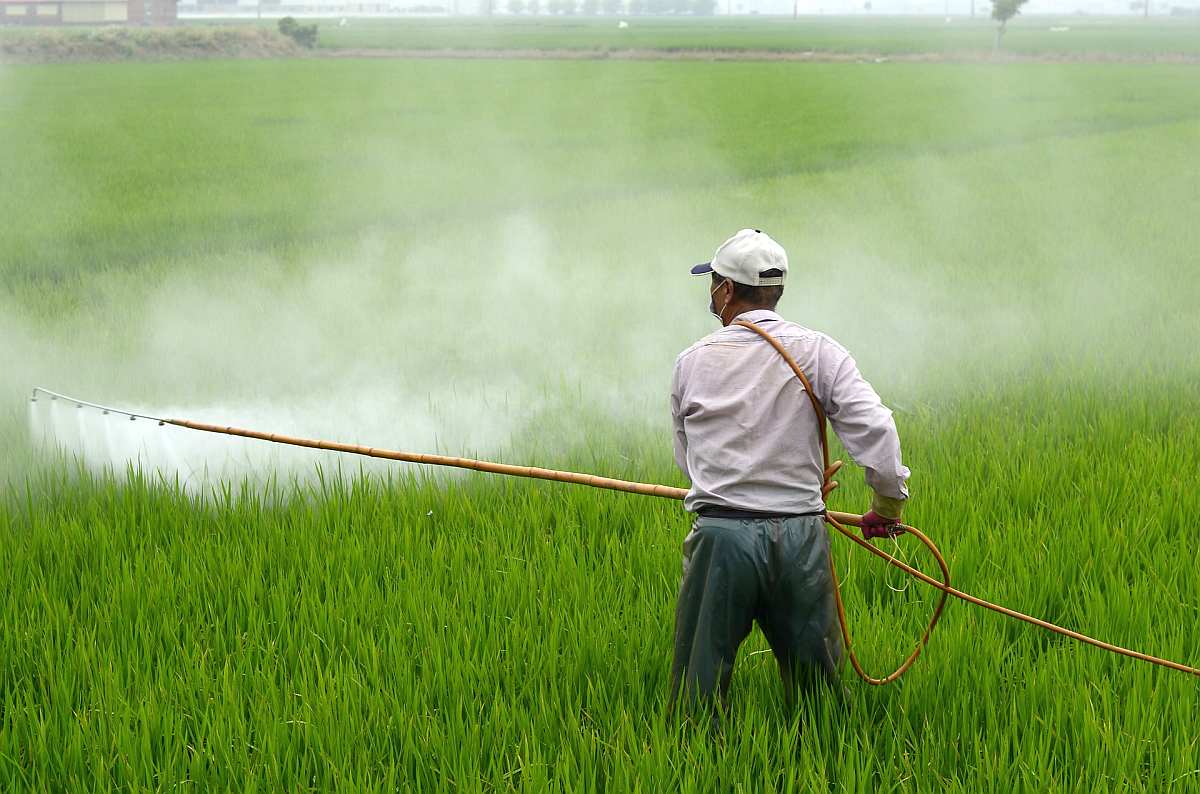
Herbicides and pesticides are toxic chemicals used to get rid of insects and control unwanted plants. They can sometimes sneak into water supplies, especially in the groundwater near agricultural areas.
When consumed through tap water, these chemicals can cause:
- eye and skin irritation
- headache
- allergic sensitization
- extreme weakness
Nitrates
These inorganic compounds are commonly present in processed meats, such as hot dogs, bacon, and ham, acting as preservatives. They are also present in tap water because they naturally occur in the air, soil, and water.
The most concerning health effect of excess nitrates is methemoglobinemia, a blood disorder that causes an abnormal amount of methemoglobin. When the body produces too much methemoglobin, it begins to replace the normal hemoglobin count, which can lead to a lack of oxygen supply in cells.
Methemoglobin Definition: A type of hemoglobin that is unable to carry oxygen in the blood, resulting in slate-gray, cyanotic skin color.
Radon
Radon is a natural gas present in the air and occurs in water tapped from wells. When groundwater passes through rocks with uranium, it releases radon into the water.
If your tap water has radon, you may be at increased risk of developing stomach cancer or internal organ cancers.
Uranium Definition: A naturally occurring, radioactive element that’s primarily used to fuel nuclear power plants.
Bacteria
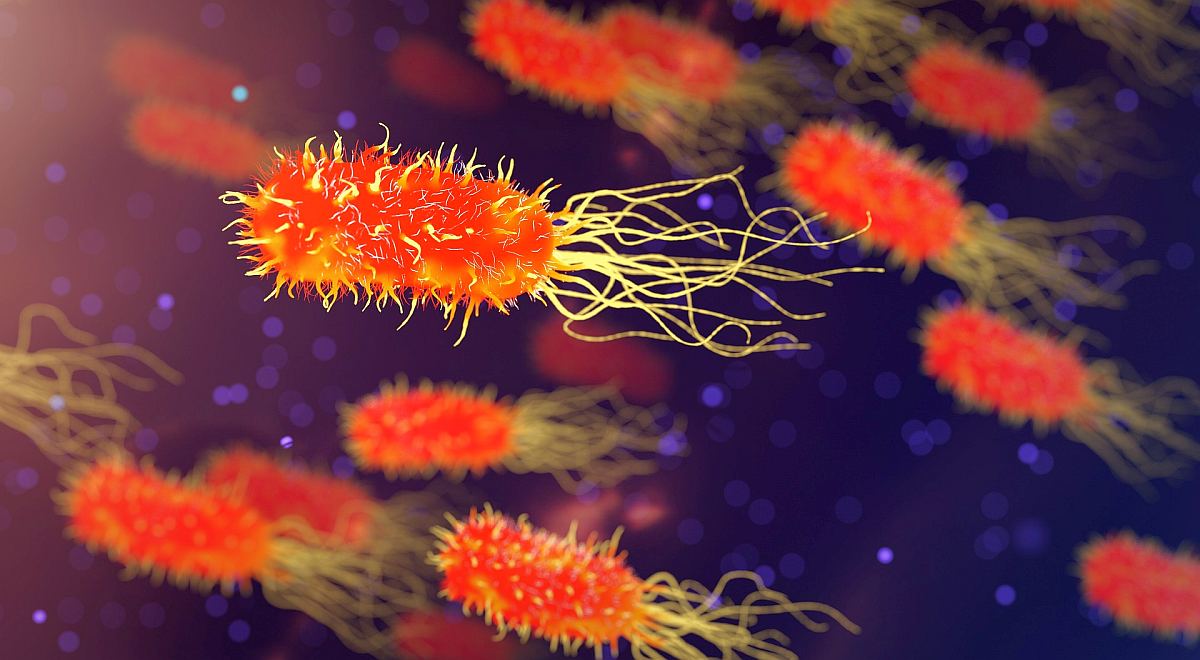 There are many types of bacteria that are present in tap water, as well as other microorganisms like viruses and protozoans. The bacteria Escherichia coli, for example, can be an issue in dirty water. It is an indicator that water has animal waste or sewage contamination.
There are many types of bacteria that are present in tap water, as well as other microorganisms like viruses and protozoans. The bacteria Escherichia coli, for example, can be an issue in dirty water. It is an indicator that water has animal waste or sewage contamination.
- coli can cause health concerns like:
- nausea and vomiting
- abdominal tenderness, pain, and cramping
- diarrhea
Legionella is a type of bacteria that can be found in tap water which can affect the lungs and cause localized infections.
Salmonella is another concerning bacteria that can cause the following health issues:
- food poisoning
- typhoid fever
- gastroenteritis (the inflammation of the intestines and stomach as a result of viral infections or bacterial toxins)
Phosphates
These are compounds of phosphate ions commonly present in fertilizers as plant nutrients and in detergents as a water softener. The presence of phosphates in water promotes excessive algae growth that makes the water dirty when algae die.
Phosphates enter water systems when dissolved rocks mix into groundwater. High levels of phosphates in the body can put people at high risk of hardened arterial walls.
How to Protect Yourself From the Side Effects of Drinking Tap Water
Getting sick from tap water can be avoided. Let’s talk about how to keep yourself and your family safe from the potential side effects of tap water.
Test Your Tap Water
If you have a private well that supplies your water, the Environmental Protection Agency (EPA) recommends testing your water at least once a year. But even if you get your water from a public water system, you should still test your water if you notice any change in taste, smell, or color. You may also want to test your water if you just welcomed or are about to welcome a new baby to your home or if someone in your household has a sudden, unexplained illness.
If you’re unsure about the quality of your water, you can request a free water report from Tyent.
Avoid Plastic
Bottled water is not the safest way to avoid potential tap water dangers. In many cases, it is simply purified tap water—sold at a much higher cost. Additionally, the plastic used in bottles is harmful to the environment and potentially to your health. A study by Rutgers and Columbia University revealed that an average liter of bottled water contains at least 240,000 plastic particles.
Invest in the Best Water System
The best way to get clean, healthy water is by investing in the best water system: a Tyent ionizer. Tyent’s ionizers clean your tap water by removing more than 200 contaminants using .01-micron Dialapure filters—the same filtration level used for kidney dialysis.
Tyent ionizers provide the cleanest, best water to drink while offering all the benefits of both alkaline and hydrogen water. Unlike tap water, which can cause many negative health effects, alkaline water and hydrogen water have tons of health benefits, including improved gut health, more radiant skin, and immunity support.
Get started with your own Tyent ionizer.
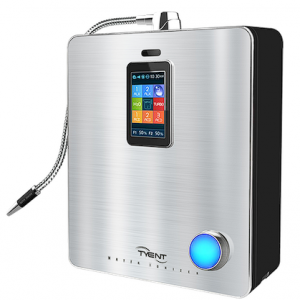
Tyent ACE-13
More About the Side Effects of Drinking Tap Water
Concerned about the side effects of drinking tap water? Here are answers to some frequently asked questions about tap water:
What happens to your body when you drink tap water?
Drinking tap water can expose you to many potentially dangerous pollutants, including bacteria, radon, and arsenic. These contaminants can cause many detrimental health effects, such as vomiting, nausea, diarrhea, headaches, eye irritation, skin irritation, stomach cramping, and much more serious conditions, such as the blood disorder methemoglobinemia.
What are the types of contaminants?
The most common types of contaminants in tap water include: arsenic, chlorine, fluoride, heavy metals, pesticides, herbicides, nitrates, radon, phosphates, and bacteria.
Can you drink too much water?
Although rare, overhydration—or drinking too much water—can occur and may lead to water toxicity. Water toxicity, also known as water poisoning, happens when excess water causes cells to swell, leading to pressure in the brain. This can disrupt the central nervous system, potentially resulting in seizures, coma, or even death if left untreated.
It’s important to note that water poisoning usually isn’t caused solely by excessive water consumption. It often occurs in individuals with underlying health conditions that impair the kidneys’ ability to regulate water balance.
Is hard water a health concern?
Hard water can pose health risks, particularly related to stomach issues and diarrhea. Even if you don’t drink hard water, bathing in it can still be problematic. Showering in hard water can irritate the skin, leading to conditions like acne and eczema, and it may also damage your hair.
How do you know if your tap water is making you sick?
Usually, stomach conditions and gastrointestinal distress are some of the first signs your tap water is making you sick. If you’re frequently struggling with stomach cramps, diarrhea, nausea, or vomiting after you drink your tap water, it’s time to test your water for contaminants.
Avoid Side Effects of Drinking Tap Water With Tyent
While most Americans still drink tap water, more than half of them are worried about what contaminants they’re consuming—and studies show they’re right to be concerned. From arsenic to bacteria to lead, many pollutants might be hanging out in your tap water.
Luckily, there’s a safer way to stay hydrated without giving up on tap water altogether. Consider filtering your tap water with the help of a Tyent ionizer. Tyent uses Dialapure filters that possess the same filtration capabilities as kidney dialysis machines. These ionizers are trusted by doctors, athletes, and celebrities around the world, who rely on Tyent not only to provide them with the cleanest water possible but also the most powerful hydrogen water.
Tyent does more than just filter your water. It provides the highest molecular hydrogen content of any hydrogen water machine on the market, enhancing energy, immune support, and more. Additionally, you’ll enjoy all the benefits of alkaline water, including improved hydration, healthier skin, and better overall health.
Make your tap water safer, cleaner, and more powerful with a Tyent ionizer.

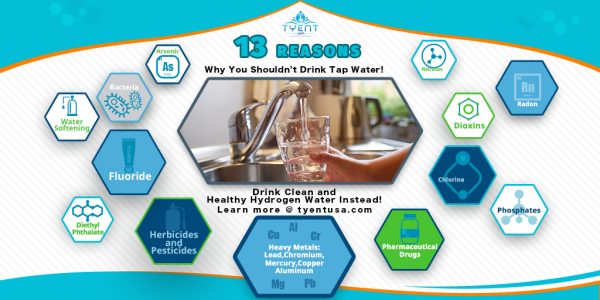
![Is Faucet Water Safe to Drink? What to Know About Tap Water [2025] Screenshot 2024-12-17 194847](https://www.tyentusa.com/blog/wp-content/uploads/2024/12/Screenshot-2024-12-17-194847-150x150.png)
![Is Tap Water Safe? Everything You Need to Know [2024] tap water](https://www.tyentusa.com/blog/wp-content/uploads/2024/10/Screenshot-2024-10-22-081930-150x150.png)
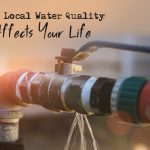


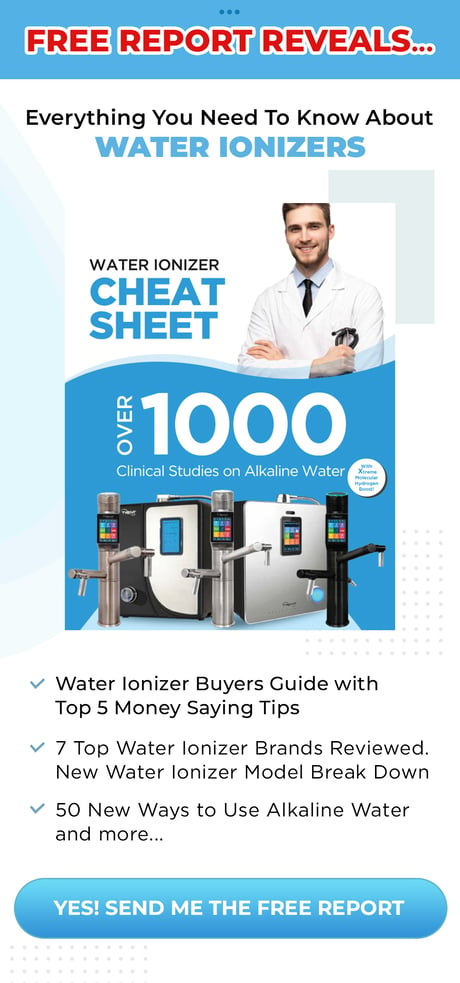
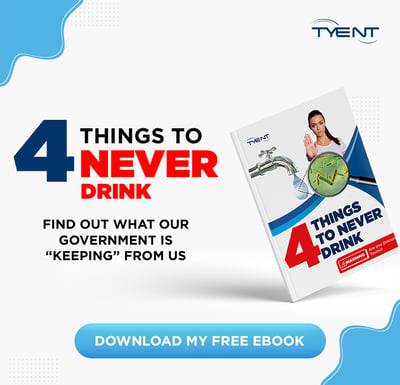
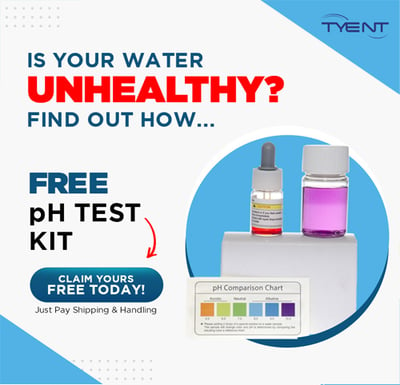
Now more than ever, after reading your article, I strongly believe my father’ death (Kidney’s), was due to him drinking tap water for his whole life.
Hi, Donald. We’re so sorry to hear about your father’s passing. We hope that you’re able to take care of your own health, especially since you’re more aware of the dangers of regular tap water.
One of the things that people love about our water ionizers is that all of our machines have two filters, and these filters remove over 200 dangerous contaminants from your tap water. If you’re interested in exploring alkaline water as a cleaner, healthier drinking source, please call our water experts at 855-893-6887. We’ll be happy to answer all of your questions.
Okay, can Tyent ionizers even filter all of these chemicals? How about those in well water?
Hi, Norah. Thanks for your wonderful questions! Yes, it is definitely possible, and we have the perfect solution for you and your family. Let me explain. First, it’s important to understand that there is no water ionizer on the market that will remove 100% of fluoride by using ONLY the regular ionizer filters by themselves. The good news is that Tyent offers an amazing pre-filter that removes fluoride as well as chromium-6 (the dangerous cancer-causing chemical that was exposed in the movie Erin Brockovich). No other water ionizer company has this type of filter – it’s exclusive to Tyent.
You’ll also be happy to know that all Tyent Water Ionizers have a dual filtration system. The primary filter contains ACF active carbon that removes large contaminants like organic compounds, chlorine, rust, and sediment, while the secondary filter contains ceramic material that balances the ions and minerals in the water. These filters have the same micron level and filtration capabilities as a kidney dialysis machine, which is .01 micron. Tyent’s Ultra Filters come standard with each of our ionizers, and they remove over 200 contaminants including 99% of lead, and up to 99% of mercury, beryllium and uranium.
You can see our third-party lab report about those here. When you combine our water ionizer’s Ultra Filters with the fluoride/chromium-6 filter, you’ll have the cleanest and healthiest water available. We take great pride in ensuring that our customers have the safest and freshest water. For more information, you can download a FREE filter report and/or check out our 4-Bank Chromium 6 pre-filter system.
Our water ionizers can filter well water too. For best results, please use pre-filters that are meant for hard water areas. Our awesome tech team can guide you in the right direction, so please give them a call at 855-893-6887.
i think this isn’t right, i may be wrong
Bottled water is pricier than tap water. Just one gallon can cost $0.89 or up to $8.26. Tap water is much cheaper compared to bottled water, it’s just fractions of this amount for tap water. Even if you don’t use your tap water you’re still paying for it, this means that tap water is cheaper than bottled water, it’s cheaper by more than 2000 times.
True or false?
A lot of bottled water companies say their water comes from waterfalls, many people believe this but in some studies, we have learned that a lot of bottled water companies are actually lying. A lot of companies just take their water from municipal water plants. Take Ice River Springs they pump out a lot of water out of the ground. The company only pays $3000 to pump out up to ten million litres of water. They applied to renew and expand its water supply. More than 5,000 citizens mailed letters protesting for the government to reject the company’s bid, they did this because there were some serious reductions in the local water tables.
Health issues
There’s some people that don’t care about the price, they only care about their health, which isn’t necessarily a bad thing. That is why a large amount of people use bottled water. But, what they don’t know is that bottled water isn’t safer than tap, and a large amount of bottled water comes from the tap. The main health concern associated with bottled water is that it may contain microplastics*. Eleven widely known bottled water companies that deliver it’s water to nine different countries have been known to have microplastics. 259 water bottles got sampled 93% contained microplastics. Microplastics have a negative impact on human health not only can it accumulate in organs including kidneys, liver and intestines. They have harmful chemicals that cause various cancers (breast cancer and many others), give you a weakened immune system, reproductive issues and endocrine disruptors, which can affect your hormones. Let’s say that your bottled water doesn’t have microplastics if you leave your bottled water in hot areas the plastic can leach into the water.
For bottled water, the FDA sets some guidelines for the water, but if you use tap water the Canadian government sets strict guidelines for your municipal water. What if you live somewhere where they don’t have safe water. For example, in Mexico, the water may have some bacteria’s that can affect your health. If you use Tap water here you should boil it so that all the bacteria die. In some places in Mexico though the tap water is actually safe it’s just that if you’re not used to it you will experience greater discomfort in your body.
Microplastics*
Very small pieces of plastic that are shorter than 5mm. Can be any type of plastic
Conveniences
Conveniences are also a reason some people prefer one over the other. If you are going to stay at home tap water is obviously way more convenient and time-efficient. For one, you don’t need to go to the store to get your water. But let’s say you’re going to go camping then obviously bottled water will be more convenient.
Believe It or Not, quite a lot of people just use bottled water because they don’t enjoy the taste of tap water. This being said in the blind taste test almost no one could tell the difference. Some just look at the bottle and think wow this is healthier. In à blind taste test that was conducted by “Good Morning America”, New York’s tap water was a clear favourite.
Water source
Percentage of how much people enjoy the water
New York, Tap water
45%
Poland Spring, Bottled
24%
O-2 Oxygenated Water, Bottled
19%
Evian, Bottled
12%
From this table, we can see that most people just think bottled water tastes better when they see it but when they don’t they actually prefer tap water.
What happens to the environment
Have you ever thought what happens to all the plastic goes from your bottled water? Or have you just bought it, used it and threw it out. More than 8 Million tons of plastic water bottles have been thrown into the ocean yearly. This affects marine life you see when we throw out plastic into the ocean it takes more than a lifetime to decompose. The water just gets smaller and smaller. A fish seeing this will think it’s food and eat, a bird sees the plastic eats it or eats the fish that ingested the plastic. BOOM, you have a sick fish and bird.
So what’s the better option
From what we’ve learned so far Tap water is obviously à better option UNLESS you live somewhere where tap water is not reliable. The following image shows which countries are safe to drink tap water. Tap water is safer, cheaper and healthier. To sum it all up tap water is fractions compared to bottled water, in a blind taste taste taste better than tap, and doesn’t contain microplastics or any other dangerous disease.
Hi, Mellisa. Thank you for the very informative comment. We really appreciate it when our readers share their correct research with us.
We totally agree with you that bottled water isn’t a great choice for drinking water. As you said, it can just be repackaged tap water, it contains microplastics and other contaminants, and it’s not eco-friendly at all.
Tap water is much better but only if it’s purified, ionized, and remineralized. That’s what we wanted to point out in this article. We don’t recommend drinking tap water on its own even if your municipal water plant follows all the health and safety protocols because metals and other chemicals can still find their way into your faucet at home.
Using a water ionizer will get rid of these contaminants and give you healthy, mineral- and antioxidant-rich alkaline water that’s got loads of health benefits. You can check out this third-party lab filtration report to see the complete list of the hundreds of contaminants that our ionizers get rid of.
We would love to talk to you more about our alkaline water and ionizers, so if you’re interested or if you have any questions, please call our water experts at 855-893-6887.
Hi, Kaleb. While we’re happy to know that you filter your water, we want to point out that a filter pitcher isn’t the most effective option in the long run. If you want to drink a healthier type of water, we recommend buying a Tyent water ionizer so that you can turn your home’s tap water into hydrogen-rich alkaline water. Our high-quality ionized water is full of molecular hydrogen, one of the most powerful antioxidants, which leaves your body hydrated and refreshed.
If you’re interested in making the switch to healthier water, we offer a financing program for as little as $25 per month. Our water ionizer experts are also eager to assist you, so give us a call at 855-893-6887.
Hi, JJ. Thanks for your question. You’ll be happy to know that Tyent’s word-class dual filtration system can remove over 200 contaminants, including 99% of lead, beryllium, chlorine, and pharmaceuticals that are often missed by other water filtration processes. Our system has the same power as that of a kidney dialysis machine! We are also the first and only water company with a filter system that’s effective at removing chromium-6 from your water (with our specialty pre-filters).
Our water experts would love to talk to you about Tyent’s amazing water ionizers, so please give us a call at 855-893-6887.
I can use a UV water purifier to kill the bacteria in my tap water.
Hi, Sybil. While a UV water filtration system removes bacteria from your source water, it leaves behind VOCs, heavy metals, other particles, and even chlorine. A UV purification system doesn’t remove any smells or tastes from your source water either, so we don’t recommend it for cleaning your drinking water at all. Because of these factors, you usually have to use it in conjunction with other water filtration systems, which means that you’ll be spending more money on multiple slightly effective machines instead of just a single highly effective one.
With a Tyent water ionizer, you’ll only ever have to buy one machine to meet all of your purified, mineral-rich alkaline water needs. The dual Dialipure filters with ultra filtration in all of our ionizers remove over 200 contaminants including 99% of lead and up to 99% of lead, mercury, beryllium, uranium, chlorine, and VOCs. If you install our specialty 4-bank pre-filter, our ionizers can also get rid of fluoride and chromium-6. To learn more about the toxins that our filters remove, read our comprehensive third-party filtration report.
We would love to talk to you about our ionizers and water, so if you’re interested, please give our water experts a call at 855-893-6887.
Hi, Theo. Letting your local authorities know about the situation and pressuring them to change it might help, but if you want an immediate solution to clean your tap water, you can invest in a Tyent water ionizer. Our water ionizers remove over 200 contaminants from your tap water, including toxins like 99% of lead, beryllium, manganese, chlorine, and Chromium-6 (with specialty pre-filters), and fill it instead with ions, antioxidants, and essential minerals. You won’t have to worry about dirty tap water anymore once you have a Tyent in your home.
Give us a call at 855-893-6887 for more info!
Hi, Leon. Thank you for your support. We’re glad you learned something from this article. The water situation that so many American households have to go through is pretty scary.
That’s why at Tyent, we make it our mission to help deliver clean water to your home with our water ionizers. Please give us a call at 855-893-6887 if you’re interested in learning about our machines!
Hi, Rodney. No, hydrogen tablets don’t perform in the same way as our water ionizers. They don’t purify the water at all and just add hydrogen to give you energy, which is why they’re only meant to be used with clean water. We only recommend these for traveling when you can’t access clean water. Please note that the hydrogen from the tablets is not as good as the hydrogen from the ionizer since it lacks the other essential minerals present in our ionizers (ex. calcium, potassium). Plus, constantly buying hydrogen tablets isn’t as cost-effective as owning your own water ionizer at home.
On the other hand, our water ionizers do the job of filtering contaminants from your tap water and providing you with all the minerals and antioxidants you’ll need in each glass of water.
If you have other questions, our water experts will be happy to answer them and help you. Give us a call at 855-893-6887.